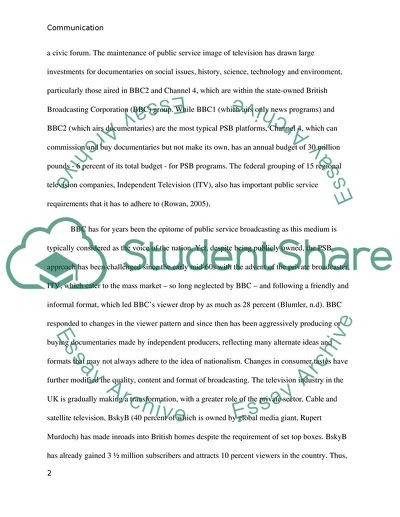Cite this document
(“Public Service Broadcasting Essay Example | Topics and Well Written Essays - 3000 words”, n.d.)
Retrieved from https://studentshare.org/social-science/1560585-public-service-broadcasting
Retrieved from https://studentshare.org/social-science/1560585-public-service-broadcasting
(Public Service Broadcasting Essay Example | Topics and Well Written Essays - 3000 Words)
https://studentshare.org/social-science/1560585-public-service-broadcasting.
https://studentshare.org/social-science/1560585-public-service-broadcasting.
“Public Service Broadcasting Essay Example | Topics and Well Written Essays - 3000 Words”, n.d. https://studentshare.org/social-science/1560585-public-service-broadcasting.


